Is it okay to eat eggs from backyard or rescued chickens? If chickens are well cared for, what’s the harm in eating their eggs? A new dietary group called “Veggans” believes that eating eggs can be ethical and healthy.
A question that I get with a surprising frequency from non-vegans and vegans alike is whether it’s ethical to consume eggs from a rescued or backyard chicken. tweet this
It goes something like this:
“My friend has her own chickens and she loves them and takes really good care of them and they’re happy and healthy and they lay eggs all the time that aren’t fertilized. So wouldn’t it be okay for her to eat them?
I mean if the chicken just drops the egg and walks away? Or carries it to my friend and offers the egg to her with outstretched wing? Or leaves a little note in the ground saying ‘please take this thing that just came out of my vagina/anus and put it in your mouth?’”
Okay I may have made up those last two. But you get the idea.
There’s even a new dietary distinction called “veggan.” So, let’s finally tackle this beast: what is the ethical concern with eating eggs from rescued or backyard hens? tweet this
Note: I want to note that this video is delivered in a stylistically sarcastic tone. This may not always translate properly in the written form of the article. The often tongue-in-cheek delivery is a stylistic choice for the video.
What Is a Veggan?
First off, let’s address this “veggan” thing. Veggans, according to dietitian Jessica Cording, “follow the ‘rules’ of a vegan diet—they avoid animal and dairy products and eat a plant-based diet—they just also eat eggs.”
Because something that comes out of the sphincter of a bird is definitely not an animal product. tweet this
Instagram is aflutter with the new hashtag and several articles have already been written on vegganism, one of which includes this gem from registered dietitian Alissa Rumsey, a spokesperson for the Academy of Nutrition and Dietetics:
“As people become more interested and aware of how food affects both their health as well as the environment, plant-based diets, including veganism, are becoming more and more popular and mainstream. Veganism may be appealing to people, but many find that it is too restrictive.”
Because once you rule out the flesh of animals’ bodies the secretions and objects that come out of their orifices, there’s just really nothing left to eat!
The Health Impact of Eggs (and Nutritional Myths)
So why do veggans feel compelled to consume the shelled menstruation of another species? Protein, of course! I mean, where else can you get it?
Food writer Vicki Anne Hadley, featured in The Daily Mail, was vegan for a whole 6 months before adding eggs back into her diet when her friend—who has her own chickens,—offered her an egg dish.
Hadley says, “I am very into fitness and have a very active lifestyle so I wanted to ensure that I would be getting enough protein in my diet.”
Never mind the fact that the USDA has deemed it illegal for the egg industry to advertise eggs as “a protein-rich food” if they’re using government money. It’s also illegal to say they “contribute nutritionally,” are “healthful” or even “contribute healthful components.” They can’t say eggs are “good for you,” “healthy” or an “important part of well-balanced, healthy diet.” Or even “safe.” Eggs were even found to have the same atherosclerotic effect as cigarettes in a 2012 study.1
However, the egg industry has been trying valiantly for decades to portray their product as healthy, rarely letting legal restrictions hold them back and, by and large, succeeding in their goal. To hear the entire sordid conspiracy behind eggs, see my video The Great Egg Conspiracy: Lies, Corruption & Kevin Bacon.
Long story short, eggs are one of the worst things you can put in your body.
The Ethics of Eggs from Backyard Chickens
However, as you may know—and as I always emphasize—veganism at its core is not about health. It can be the healthiest way to eat, but poor health doesn’t necessarily mean poor ethics. So even if eggs are horrendous for our health, what’s the ethical issue with eggs from backyard or rescued chickens?
The Reality of the Egg Industry
If you don’t already know, chickens on standard farms—and even cage-free farms—are kept indoors in cramped, filthy conditions and forced to produce an unnaturally large amount of eggs, robbing their body of essential nutrients and leading to premature death. If they don’t die from exhaustion, disease, or malnutrition, they’re sent to slaughter when their production declines—typically around 68 – 72 weeks of age, though their life expectancy is around 8 – 10 years.
The most horrifying aspect of eggs is that male layer chicks are ground up alive or suffocated by the hundreds of millions or more every year. These are brand new, fluffy baby chicks—thrown into grinders while they’re still conscious.
Ethical Considerations for Backyard Chickens
All of that horror aside, what about these idyllic backyard and rescues chickens, living out their lives outside in the grass, free to roam and peck as nature intended?
There are several aspects to look at here. First, where did these beloved chickens come from? Did your friend—because everyone who asks me this refers to their friend or some hypothetical situation, so I’ll follow suit—did they buy them from someone involved in the animal products industry? If so, that act in itself is supporting cruelty. But let’s say your friend rescued their chickens from a sanctuary.
It Takes Resources and Know-how to Care for Chickens
Another consideration is: does your friend really have the resources and know-how to care for chickens? Backyard chickens seem to be the new urban hipster accessory. They are to hipsters what the purse Chihuahua is to socialites.
Many people who excitedly bring home their chickens don’t realize the high cost of properly caring for them and either end up offering a sub-par or even low-quality home for their chickens, turning around and passing them off to someone else, or even letting them go as if they’ll return to the chicken wild.
Chickens (Need to) Eat Their Own Eggs
But let’s say your friend knows their chicken stuff and has the finances and land. Is it okay to take the eggs then?
What not everyone knows is that chickens will cannibalize their own eggs. This is an important practice that returns vital nutrients to their system lost with egg production. Making an egg is a serious endeavor involving an extreme loss of calcium and pressure on the hen’s body.
This is part of why hens in the egg industry die so early. In addition, taking a hens egg away sense the signal to her body to make a replacement. So the more eggs we take away the more she’ll produce, thus continually depleting her body.
If your friend’s hens don’t seem interested in eating the egg, they can always crack it a little, which usually lets the hen know it’s not going to turn in to a baby and is available for eating. This is something I did when I volunteered at SASHA Farm Animal Sanctuary. And trust me, there was nothing left.
Eggs Are Not Made for Us
But what if your friend has cracked the egg and the hens still won’t eat it. Can they then, finally, serve it up over easy, despite, of course, the health consequences? Isn’t an omelet ethical at this point?
Here’s what it comes down to: hens do not make eggs for us. They are not ours.
This insane drive to justify something—anything—that came from an animal because god forbid we not eat something that came out of someone else, is part of the addict behavior of animal product consumption.
Here’s what it comes down to: hens do not make eggs for us. They are not ours.
tweet this— Emily Moran Barwick
If you think that’s extreme, take in this excerpt from an article in The Guardian quoting Isobel Davies, co-founder of Hen Nation, an “ethical egg” farm.
Davies says, “I get so many emails from vegans about our eggs. One woman said she couldn’t sleep the night before trying them because she was so excited.”
Linda Turvey, who runs the Hen Heaven sanctuary says, “I get calls from all over the country. Virtually all the eggs are going to vegans or their friends and family. I recently got a call from a new vegan who works out in the gym and wanted to order 80 eggs a week for the protein.”
She recalled one man from London who caught the train to Horsham, a bus to Henfield and then walked a mile and a half to the Sussex sanctuary just to get some eggs for his vegan daughter.
Now if that’s not addict behavior, I don’t know what is.
In Closing…
I hope this video was helpful. If you want to learn more about eggs, check out these posts. I’d love to hear your thoughts on the backyard chicken debate and the veggan phenomenon. Let me know in the comments!
If you liked this golden egg of a nugget, please share it around to answer this oft-asked question. To help support Bite Size Vegan’s educational efforts, please see the support page.
Now go live vegan, stop eating sphincter food, and I’ll see you soon.
— Emily Moran Barwick


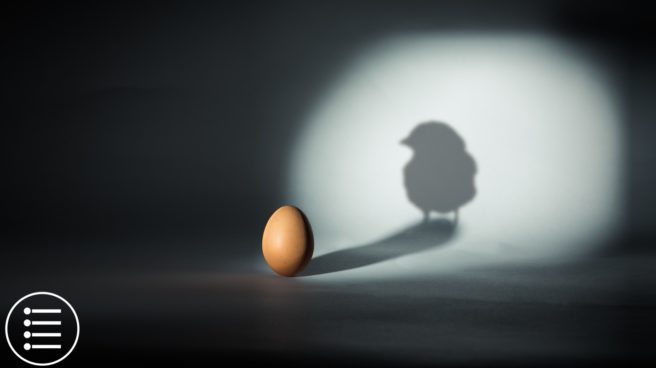
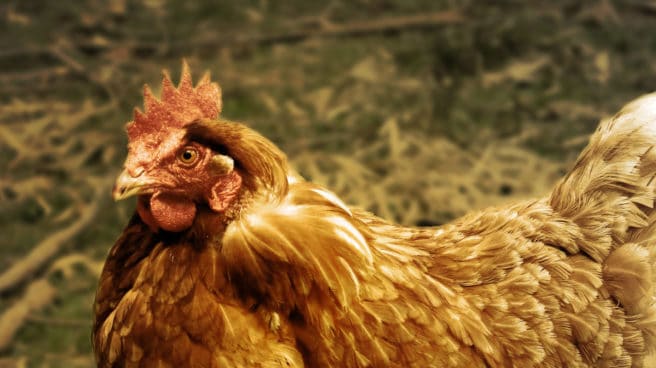
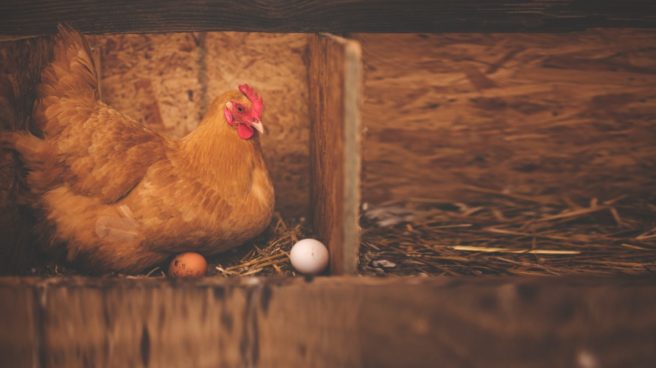
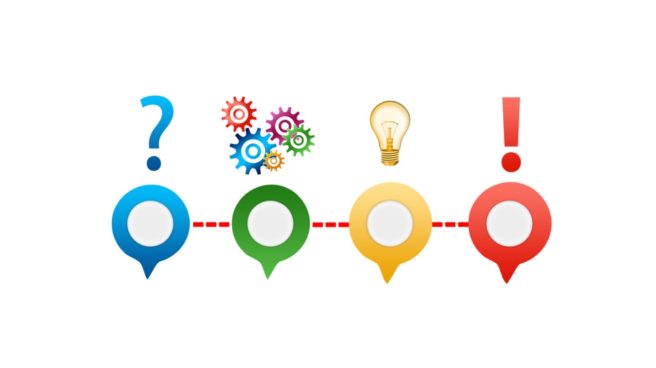
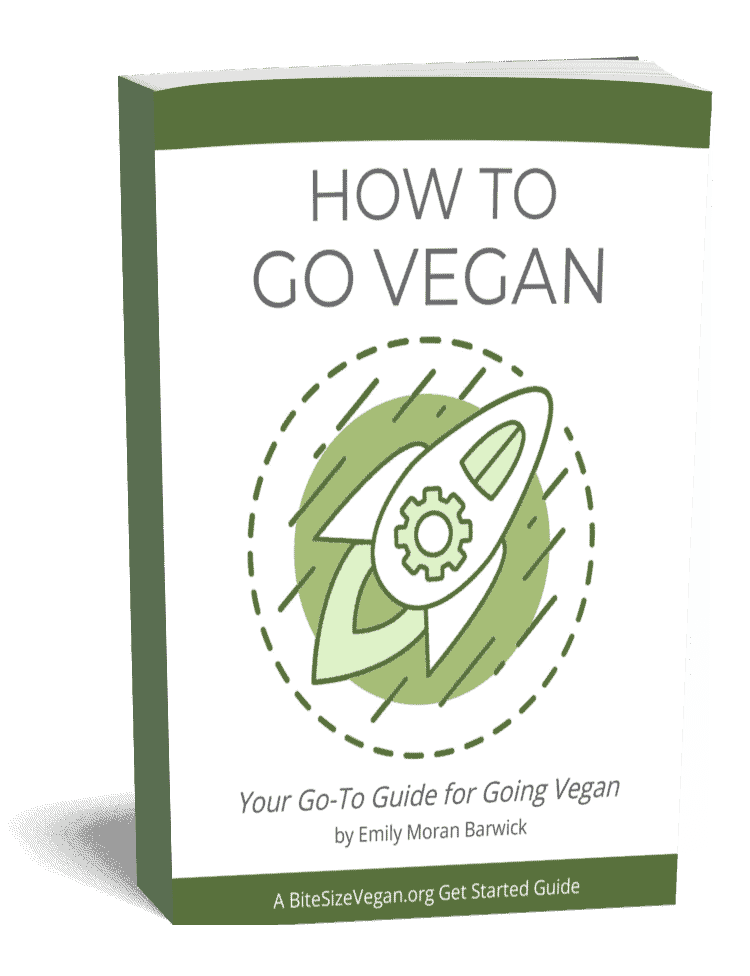
So much to learn about eggs. I didn’t know they cannibalized their own eggs.
Vegan is to me no animal flesh or products at all. Plant based food only.
Great post, dear Emily, as always. I always love your posts but this one is particularly useful for me because, I have been asked that question many times myself. So I am so happy to be able to refer people to this nugget in the future. I myself didn’t know until quite recently that hens will produce more eggs if some are taken away. I am shocked about how naive I was … But there it is. I did know that hens need a lot of space to roam freely and that the average backyard just doesn’t provide what they need.
Anyway, great post and very fun to watch. Thank you.
Love from Frid
So glad that this was helpful, Frid! I have been asked it SO many times as well, which is why I really wanted to finally get this video out :)
Thanks Emily for this informative video on eggs, you have given me more ammunition to use with my vegetarian acquaintances, they are driving me nuts already about their justification for their backyard hens and ‘ethical’ egg consumption..
Happy to help!!
You crack me up, Emily !!! Sorry, kind of obvious, my pun. Anyway, loved the video. Talked about people wanting their cake and eating it too. You can’t eat animal products and be vegan !! Veggan ….. shmeggan.
It’s amazing the excuses we come up with to justify our addictions. Saying that Vegans can eat eggs is like an alcoholic saying they gave up wine and beer but they still drink vodka :(
Aloha Emily,
GREAT post. Beautifully covered.
I get this question a lot, too! At a Natural Grocers talk, I learned about hatcheries and the horrific cruelty attached to them. I’m glad I’m not supporting that!
Interesting and you make valid points, as a vegan curious person I thought it might be good for you to hear that your tone is a bit off-putting because at times how you’ve explained your opinion come across as.. like, I guess the food version of holier than thou. Like, with more compassion and less disgust I think you could be more convincing.
Thank you so much for your feedback, Sandra. I alter my tone and delivery with every video and per-audience. With having online videos, of course, I can’t control which audience watches, just what I’m crafting the particular video for. I think you’d find my tone/approach in my Ireland Speech very different than in this video. And actually most of my content tends to be far more approachable and meeting people where they are. Like my video on Halal and Kosher slaughter as well. And many others.
This video was meant to be more of a “snarky”/sarcastic delivery. Pointing out absurdities through irony. I don’t do this very much in the grand scope of my video styles and approaches. But this kind of delivery does reach some people when other approaches do not. No one way is appropriate for everyone. I do appreciate your feedback and agree that this kind of approach is not ideal for some people. I’d encourage you to watch some of my other content, if you haven’t already. This speech excerpt on eggs, for example, is another video also about eggs but a totally different, more measured approach. Many thanks again!
I really feel like there is some important information missing in this one. Wild chickens used to lay only 12 eggs a year, like any other bird, mostly in spring for the sole purpose of reproducing. Humans have selectively bred these chickens to lay up to 300 eggs a year, at the expense of the animals their health. Commercial feed encourages this unnatural amount of egg-laying. But if you don’t feed these to your chickens, but feed them a different diet instead, they will not lay as many eggs, just once in a while, which is much better for their health. It’s also important that, since they are still selectively bred after all, to feed back their eggs to them so they can regain the nutrients. This can either be done by feeding it back to them raw, broken or cooked, for optimal health.
The whole idea that we need to keep selectively breeding chickens to lay this unnatural amount of eggs at the expense of their health (on the long run) is harmful in itself and no better than breeding chihuahuas with skulls too small for their brains just because people like it. No person who takes morality seriously would encourage to keep breeding animals this way, nor to keep using these animals for this own selfish purposes.
That being said, breeders also kill the males, BECAUSE people want their sisters for their eggs. If you buy from a chicken breeder, you’re responsible for those deaths, because these animals are being selectively bred and disposed of just because you want to feed your addiction.
I’ve rescued chickens for 30 years and I can tell you that chickens do not cannabalise their eggs. Chickens will eat eggs when they crack and the contents are exposed- then they will eat the contents and the shell- but this does not happen if the shells are hard due to the chickens getting adequate calcium thru access to fresh greens and grit in dirt- ie free range chickens. These chickens will normally be killed after 18 months unless rescued. It is an absolute joy to transition these sweet birds to a normal chicken life and they can live a long life- my rescued hen Sweetie recently died from old age and she was 8 years old and hadn’t laid an egg for 4 years. Also ethics is not black and white as suggested in the article- ie chickens do not lay eggs for us. This argument is very weak because it implies that we don’t do anything to animals because they don’t consciously wish for this…if this was a true then we would not neuter our dogs and cats because it is not their choice. Ethics goes beyond this and considers all perspectives, pros and cons to reach a conclusion of the least possible harm and most benefits. The truth is rescued chickens lay eggs and just leave them to go rotten- they do not eat them, Nor do they sit on them as the chickens used in the egg industry do not go broody. With no rooster the eggs are infertile. How ethical is it to leave the eggs to waste? I am a vegetarian who does not eat dairy and will only eat eggs from my own chickens knowing they live a cruelty free life. I never eat eggs from any other source and when my chickens are moulting and not laying I don’t eat eggs. From an ethical viewpoint I also give eggs away to my family as this means they are not buying eggs from chickens who are being exposed to cruelty. I also give eggs to the food bank as letting eggs rot when people are starving is not ethical in my view.
Lynette, I think you forgot to mention that the brothers of the chickens you “rescue” are killed. Without your demand for eggs, or wanting to “rescue” them TO exploit them for their eggs yourself, these male chicks wouldn’t be bred for the sole purpose of being killed. If you stopped supporting that horrible industry by taking their “spent” chickens and keeping them in business, you’re just as guilty for the male deaths as the industry is.
Also, spaying/neutering is to benefit the animals. There are so many cats and dogs killed in shelters because there are too many being bred and most are killed by the shelters, so spaying/neutering actually benefits the animals and the animals ONLY. Genetically manipulating chickens to lay an unnatural amount of eggs, kill their brothers and use them as egg machines doesn’t benefit them, it only benefits YOU. These chickens shouldn’t be bred in the first place. Depriving them of their nutrients just so you can steal their eggs an then giving them supplements is not kindness. And yes, if you leave the eggs alone and stop giving them feed that stimulates egg-laying, they won’t lay as much, and they will probably start cannibalizing the eggs. Once they had a taste of it, they will most likely repeat it. You can also cook the eggs, chop them up and feed it back to them to minimize health problems.
Genetically manipulating animals to feed human’s wallets or addiction is NOT ethical. If you want to do something ethical, oppose the idea of breeding these puppy-mill style chickens to start with. It’s good that you don’t kill them yourself, if they haven’t died from deficiencies already, but that is no justification for encouraging the idea that’s it’s fine to breed animals to be egg-machines at the expense of their well-being, nor the male-culling that is a direct result of this encouragement. Because yes, chickens lay eggs for themselves, to reproduce, not for YOU. Just because you support breeding them to lay an unnatural amount of eggs, taxing their bodies, doesn’t justify taking their eggs. By that logic, breeding dogs with an unnatural period, depriving their bodies of iron, just because you want to sell the blood, and then giving them iron supplements so they won’t die (too soon) because of your exploitation is perfectly fine. It’s not. They’re not yours. Leave them alone and stop encouraging their exploitation, please.
I think the whole ‘can’t say it has protein’ is because eggs have collagen and some collagens cannot be digested, so we don’t get the nutrients. However, eggs are a source of protein – as we get some collagens that are digestible, just not all of it.
I think Cynthia misunderstood Lynette and if what Lynette said is true, then I do agree with her – food should be utilized to not be wasted, so that we don’t contribute to the wasteful food industry.
There was a video that Joey Carbstrong did about him accidentally buying a meat sandwich and throwing it away. I don’t believe that’s fair to the animal that created that sandwich – at least give it to a meat eater, so that they don’t buy their own sandwich. Veganism can be wasteful with neglecting food available – that’s why freegans are a little better to animals – as not eating that animal product that would go to waste means that we’d eat vegan food that might involve animal cruelty and resource use, which is a risk we can avoid. I can’t really eat animal products, they make me ill, but I don’t blame others for not wasting food.
Sometimes veganism isn’t better for the environment, such as this situation, and I believe that’s anti-vegan (i.e. making a choice that’s worse for the environment through veganism), because if we don’t take care of the environment, then wildlife will be negatively impacted by climate change and that’s not vegan!
Earthling Ed goes further into the whole backyard chicken movement as to why it’s not vegan.
A few years ago, I came across a list on listverse.com of strange foods from around the world, and one item on that list was eggs boiled in prepubescent boys’ pee that the Chinese eat every spring.
With my current vegan lifestyle, I have pondered the vegan status of a food that uses little boys’ pee as an ingredient. The eggs mentioned above are clearly not vegan, because they are eggs, but what if the pee was used an otherwise vegan food?
I have decided that no, that food would no longer be vegan. Firstly, biologically speaking the urine is an animal (humans are animals) product ingredient, and secondly for all us Westerners know the Chinese boys might be coerced into donating their urine to be used in the food, which would be exploitation just like in any other non-vegan food.
Still even if the second did not apply and consumers could know for certain that the boys were donating their pee freely, happily and willingly, and didn’t have to if they didn’t want to, the food still wouldn’t be vegan, at least in my opinion, because unlike something like a mother nursing her infant, urine is not a necessary ingredient, it is not natural to use in food, and it poses no health benefit (not sufficient in-and-of-their-own to render a food non-vegan, but remember that this ingredient technically IS an animal product). The Chinese claim these “eggs” help with arthritis and heat stroke, but I find this a dubious claim considering that urine is waste that the body has gotten rid of for the specific reason that it doesn’t want it. Why put something back in the body when the body has clearly gotten rid of it for a reason? Even if used as an ingredient if the food it was in were otherwise vegan, it also somewhat commodifies young boys for their pee, sort of similar to how backyard hens are commodified for their eggs.